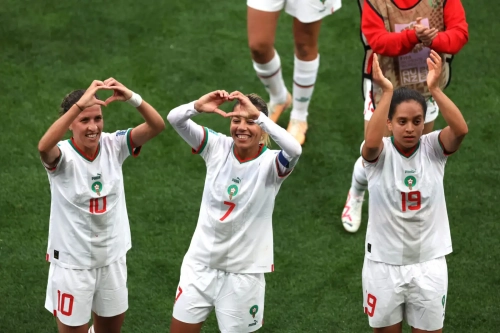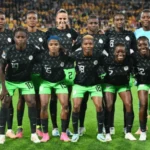Postponed to July 2025 due to scheduling conflicts with the Paris Olympics, the 15th edition of the Women’s Africa Cup of Nations (AFCON)—still officially referred to as the 2024 tournament—kicks off in Morocco this month amid hopes of elevating African women’s football to long-overdue prominence.
From 5 to 26 July, twelve national teams will converge on Moroccan soil, where ambition, visibility, and legacy hang in the balance.
While the men’s Euro 2025 tournament dominates headlines in Europe, Africa’s women will fight not only for the continental crown but also for greater recognition in a footballing landscape that continues to overlook their efforts.
Since its inception in 1991, the Women’s AFCON has taken gradual steps forward.
The expansion to 12 teams in 2022 marked a significant milestone, as did the Confederation of African Football’s push for a more professional tournament structure.
Yet challenges remain stark. Broadcast coverage is limited—this year’s tournament will stream on CAF’s YouTube channel—and corporate sponsorship is scarce.
With traditional media coverage still minimal, the competition struggles to make its presence felt even within Africa.
Morocco’s role as host for three consecutive tournaments—2022, 2024, and the upcoming 2026 edition—underlines the Kingdom’s strategic ambitions.
As CAF President Patrice Motsepe declared: “This AFCON will be the best and most successful in the history of the competition. African countries will travel to Morocco to celebrate this great event of African football.”
The infrastructure supports that claim. Six stadiums across Rabat, Casablanca, Mohammedia, Berkane, and Oujda will welcome fans, with the capital’s Olympic Stadium selected for both the opening match and final.
The layout reflects an effort to decentralize access and showcase Morocco’s logistical capabilities as a continental football hub.
On the pitch, the competition promises drama and excitement.
Group A features hosts Morocco, who reached the final in 2022, alongside Zambia, Senegal, and DR Congo.
Nigeria’s Super Falcons, 11-time champions, headline Group B, joined by Algeria, Tunisia, and Botswana.
The #TotalEnergiesWAFCON2024 final draw: ✅
Which group is the toughest? 🤩 pic.twitter.com/UNiolcvSNd
— CAF Women’s Football (@CAFwomen) November 22, 2024
Group C sees defending champions South Africa square off against Ghana, Mali, and surprise entrants Zanzibar.
Yet beneath the surface, inequalities persist.
Players across the continent report inadequate funding, equipment shortages, and a lack of basic support.
Ivory Coast’s Cynthia Djohoré recently revealed to Ancré Magazine: “We have to come with our own pair of gloves. We don’t receive any bonus for training, only 8 euros for transport. The 150 euros the club pays me isn’t enough to feed my daughter.”
While top clubs like AS FAR Rabat and Mamelodi Sundowns offer some stability, the broader ecosystem remains fragile.
The African Women’s Champions League, launched in 2021, aims to bridge the gap—but much work remains.
As the 2024 Women’s AFCON begins, Morocco provides not just a stage, but a potential turning point.
If the tournament delivers both on and off the pitch, it could catalyse the long-awaited transformation of women’s football across Africa.











